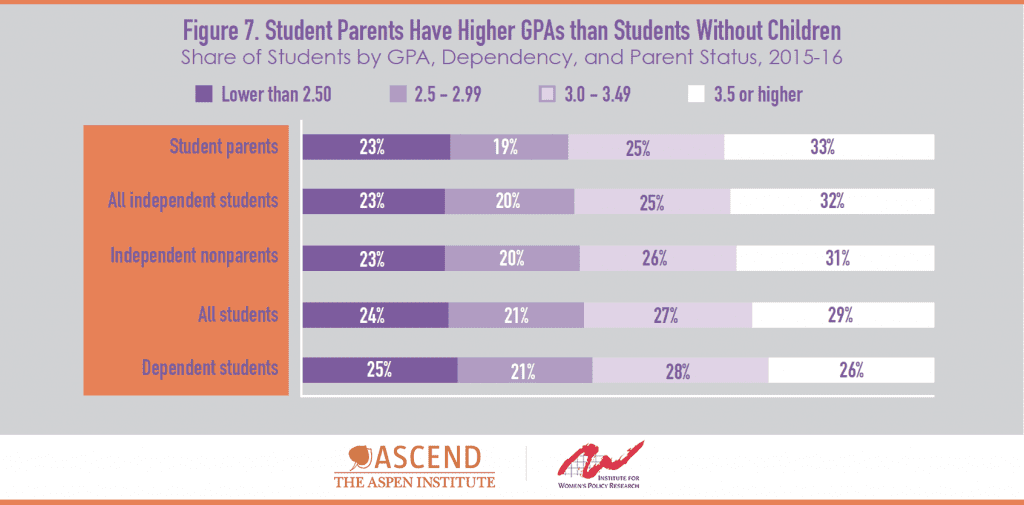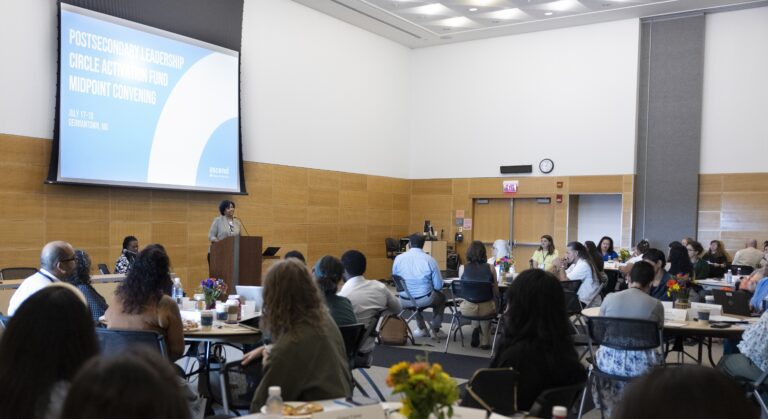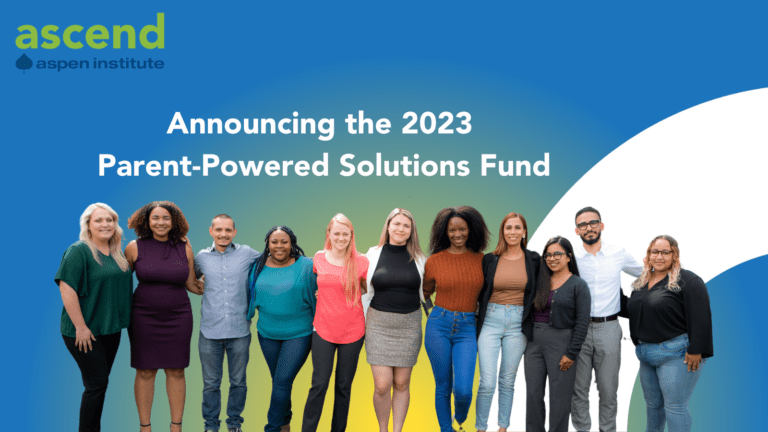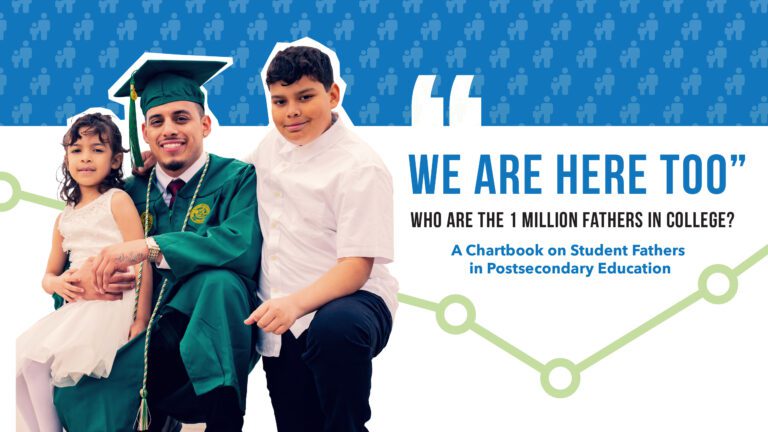New Fact Sheet and Mental Health Brief: Understanding and Supporting Student Parents
With 22 percent of the undergraduate student population comprised of parents with children, policymakers and institutions must explore the unique needs of this population and address the challenges that may prevent parents from attaining their degree. This includes determining what systems, services, and approaches best support their mental health needs.
As part of the Aspen Postsecondary Success for Parents (PSP) Initiative, Ascend is releasing a fact sheet in partnership with the Institute for Women’s Policy Research that breaks down the most recent data on students who are parents, and a brief outlining opportunities for policymakers and academic institutions to adapt existing mental health services in order to meet the unique needs of student parents and help them complete their degree.
The Parents in College: By the Numbers fact sheet features new analysis of data from the National Postsecondary Student Aid Study. Top takeaways include:
- More than one in five college students – or 22 percent of all undergraduates – are parents.
- The largest share of student parents is enrolled in community colleges (42 percent of all student parents are community college students).
- Nearly half of the for-profit student body are parents.
- Over a quarter of all women and two in five black women in college are mothers.
- The majority of student parents have children under age 6.
- Parents, particularly black parents, take on significant student debt.
- Student parents achieve higher grade point averages than other students; 1/3 of student parents have a GPA of 3.5 or higher.
Download the infographics and social media graphics to share the new data with your networks, and check out IWPR’s press release to learn more about the data analysis.

Mental health challenges — including depression and anxiety — can be a barrier to both academic and parental success for students who are parents. While there are studies linking a parent’s mental health to their child’s success, and research showing how a parent’s educational attainment can put their family on a strong path to economic stability, addressing the mental health needs of students who are parents is an emerging field.
Ascend’s Identifying and Addressing Mental Health Needs of Students Who are Parents brief outlines what we know about mental health in new parents and postsecondary students, and how those needs intersect in the student parent population. Policymakers and academic institutions can design mental health services that work for parents.
Policy solutions include:
- Improve access to affordable, quality child care.
- Help students leverage safety net supports
- Improve access to mental health services.
Campus solutions include:
- Help parents who are students access financial support.
- Support social networks.
- Tailor services with a parental lens.
- Remove the stigma.
With mental health challenges on the rise among all college students, ensuring academic institutions understand and are equipped to address the specific needs of postsecondary students who are parents is critical to helping those students succeed.
Parent and nonparent students face similar stressors, including time and financial constraints as well as feelings of isolation and trouble making social connections, a one-size-fits-all approach to supporting the mental health needs of postsecondary students is short sighted. Parents who are students have a unique set of needs and require services and supports that work for an entire family, not just the student.
Two-generation (2Gen) programs and policies create opportunities that allow adults and the children in their lives to build on each other’s successes. Investments in the postsecondary success of parents with young children can increase attainment of credentials leading to good jobs, bring children the benefits of high-quality learning environments , promote later college-going among children, and improve family economic security across generations.
This brief and fact sheet are part of a suite of materials to be published through late 2019 that elevate a set of parent-informed recommendations for student parents’ success.
Please read the first two reports for policymakers and practitioners to learn more about our initial recommendations; check out a new blog by PSP Parent Advisor Lesley Del Rio, who recently restarted her journey towards postsecondary completion and was able to build social capital through participating fully in PSP convenings and developing new networks of support; and stay tuned for more insights, including a model and framework for philanthropists and postsecondary leaders in the coming months.
Related Posts















